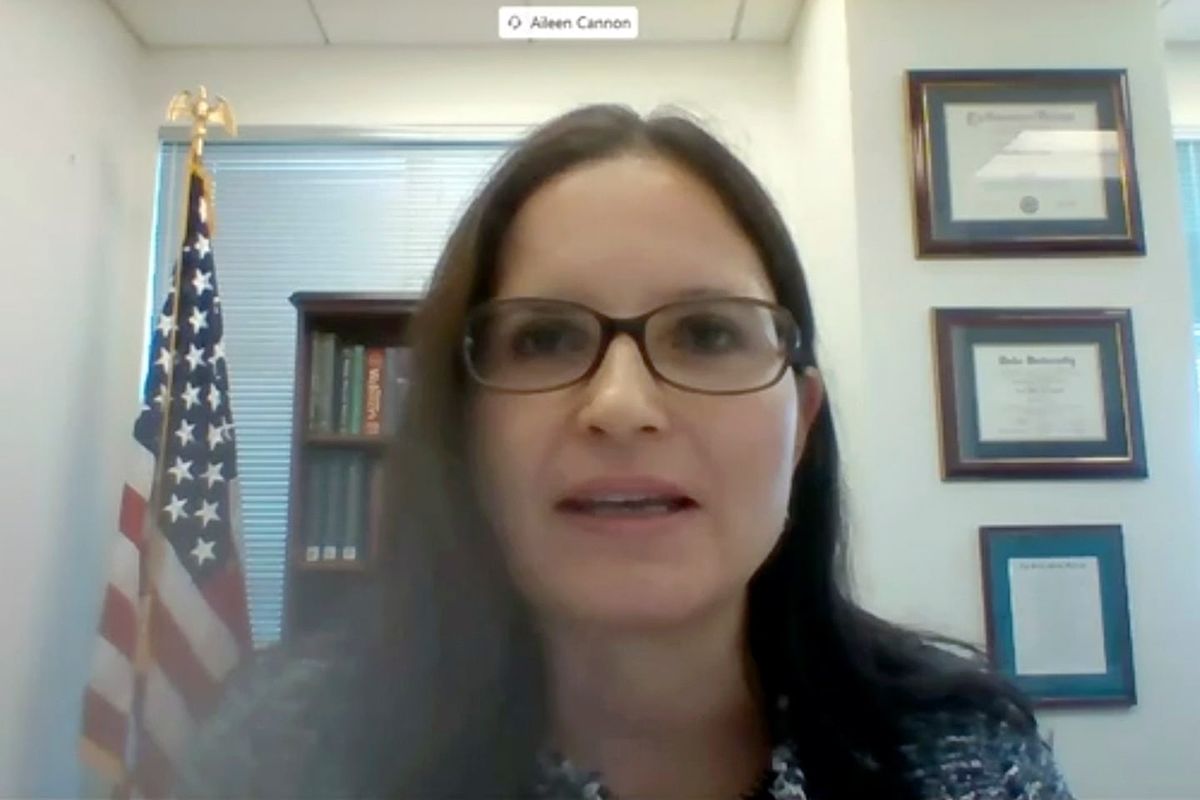The judge in the classified-documents case involving former President Donald Trump has ordered lawyers to submit proposed jury instructions, indicating that a trial may be forthcoming. The instructions will address defense motions seeking the dismissal of the indictment, with the judge expressing openness to certain aspects of the defense’s arguments.
Judge Requests Proposed Jury Instructions in Trump’s Classified-Documents Case
The judge presiding over the classified-documents case involving former President Donald Trump has ordered lawyers to submit proposed jury instructions, indicating that a trial may be forthcoming.

( Credit to: Washingtonpost )
Judge Aileen M. Cannon, who was nominated by Trump and has been on the bench since late 2020, has instructed lawyers to submit proposed jury instructions by April 2, despite not yet ruling on the trial date or other key issues.
Judge Cannon’s focus on jury instructions suggests that she is not only considering a trial for the former president but is already contemplating the conclusion of such proceedings.
Judge Cannon Open to Defense’s Arguments on the Presidential Records Act
In the classified-documents case, Judge Cannon appears open to some of the defense’s claims regarding the Presidential Records Act.
The defense argues that the act allows presidents, including Trump, to declare highly classified documents as their personal property. However, national security law experts assert that this interpretation contradicts the law and its historical interpretation by the courts.
Judge Cannon has asked both the prosecution and defense attorneys to consider two hypothetical scenarios in their proposed jury instructions, which involve the jury determining whether certain records are personal or presidential based on the definitions outlined in the Presidential Records Act.
Trump’s Defense and Skepticism from Judge Cannon
Trump’s defense claim that the Presidential Records Act allows him to declare classified documents as personal property faced skepticism from Judge Cannon.
The act, passed in 1978 after the Watergate scandal, stipulates that presidential records belong to the public and must be turned over to the National Archives and Records Administration at the end of a presidency.
During the hearing, Judge Cannon raised questions about how prosecutors distinguish Trump’s conduct from that of other former officials, indicating that additional motion hearings may be scheduled in the future.
Judge Cannon’s Order and Trump’s Legal Strategy
Following the hearing, Judge Cannon issued an order requesting proposed jury instructions from both the prosecution and defense attorneys.
Trump’s legal team has sought to postpone the trials until after the 2024 election, alleging a vindictive and politically motivated prosecution.
While Judge Cannon has not yet ruled on a new trial date, she has acknowledged the need for additional time to address pretrial matters related to the use of classified documents as evidence.
Conclusion
In the classified-documents case involving former President Donald Trump, Judge Cannon has ordered the submission of proposed jury instructions, indicating the possibility of a trial.
Judge Cannon has shown openness to some of the defense’s arguments regarding the Presidential Records Act, but skepticism towards Trump’s claim that the act allows him to declare classified documents as personal property.
Trump’s legal team has sought to postpone the trials, alleging a politically motivated prosecution.
While no new trial date has been set, Judge Cannon has recognized the need for additional time to address pretrial matters.
